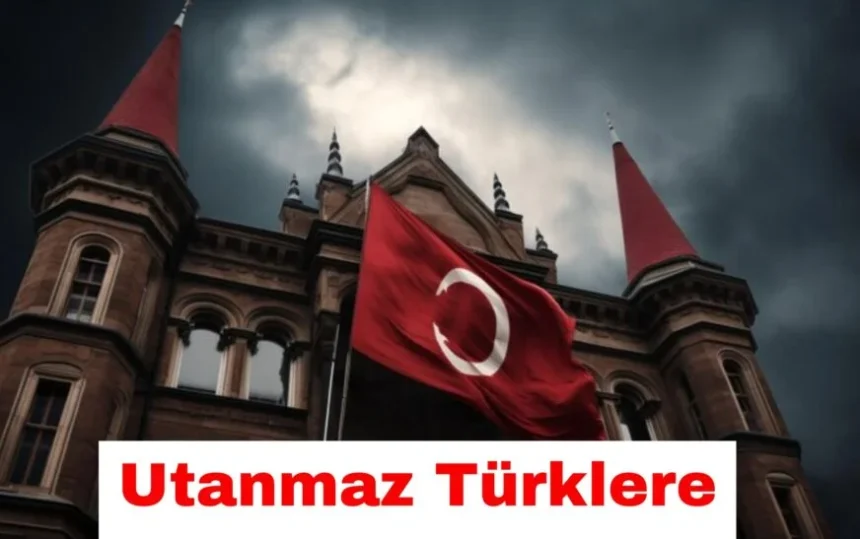Introduction to Utanmaz Türklere
Utanmaz Türklere is a phrase that echoes through the streets of Turkey, sparking conversations and reflections on identity, culture, and societal norms. At first glance, it may seem like just another expression in Turkish lingo. However, its depth transcends mere translation. It captures the essence of a mindset—one that challenges conventions and embraces authenticity.
In this blog post, we’ll peel back the layers surrounding Utanmaz Türklere to uncover its literal meaning and explore how it resonates within contemporary society. From cultural significance to modern usage and even controversies tied to it, there’s much more than meets the eye with this captivating phrase. Let’s dive into this linguistic journey together!
The Literal Translation and Its Context
The phrase “Utanmaz Türklere” translates literally to “shameless Turks.” This expression can evoke strong reactions, depending on the context in which it’s used.
In Turkish culture, the word “utanmaz” carries a weight of moral judgment. It implies not just a lack of shame but often an audacity that challenges societal norms. Coupled with “Turklere,” it suggests a collective identity tied to cultural behaviors.
Understanding this term requires delving into its socio-political implications. It reflects perceptions about national character and behavior, particularly in turbulent times or heated debates within society.
This phrase appears frequently in discussions surrounding ethics, politics, and social issues. Its usage reveals underlying tensions between tradition and modernity among various groups within Turkey. The interplay of pride and critique makes it complex yet fascinating.
The Cultural Significance of Utanmaz Türklere
The phrase “Utanmaz Türklere” carries deep cultural resonance in Turkish society. It reflects a complex interplay of identity, pride, and critique within the collective consciousness.
Historically, it has been used to describe individuals or groups who defy societal norms or expectations. This can evoke admiration for their boldness or frustration at perceived disrespect towards traditions.
In contemporary discussions, “Utanmaz Türklere” often emerges in debates about modernity versus tradition. Many view it as emblematic of the tensions between progressive values and conservative outlooks.
Artists and writers frequently reference this term to challenge conventional narratives. By doing so, they invite audiences to engage more critically with concepts of honor and shame within cultural contexts.
Its significance lies not just in language but also in how it shapes social dynamics and influences dialogue across generations.
How the Phrase is Used in Modern Turkey
In modern Turkey, the phrase “Utanmaz Türklere” has found its way into everyday conversation. It often emerges in discussions around social behavior and moral standards, functioning as a critique of those who defy societal norms.
You might hear it used humorously among friends or more seriously in debates about national identity. The context can vary significantly depending on tone and setting.
Social media platforms have also adopted the term, making it a popular hashtag during heated discussions. This usage highlights both frustration and amusement at certain behaviors perceived as lacking integrity.
Moreover, news outlets occasionally reference “Utanmaz Türklere” when reporting on controversial public figures or incidents that spark outrage within communities. Its versatility allows for rich interpretations across different demographics and contexts in contemporary Turkish society.
Controversies Surrounding Utanmaz Türklere
The phrase “Utanmaz Türklere” has sparked a variety of debates in Turkey. Its connotation often leads to heated discussions about nationalism and identity. Some view it as a badge of honor, celebrating boldness and defiance against societal norms.
Conversely, others argue that the phrase can perpetuate stereotypes. Critics claim it fosters an image of Turks as unrefined or lacking decorum. This duality creates friction among different groups within society.
Social media amplifies these controversies, with hashtags surrounding the term trending during national events. Supporters passionately defend its use while opponents counter with calls for cultural sensitivity.
Moreover, political figures occasionally exploit the term to rally their bases or to discredit rivals. The result is a tangled web of opinions that reflect broader issues in Turkish culture today.
Similar Phrases in Other Cultures
Language is a tapestry woven with unique expressions. Many cultures have phrases that resonate similarly to “Utanmaz Türklere.”
In Spanish, the term “sin vergüenza” conveys a sense of shamelessness. It captures the essence of someone who acts without regard for societal norms or morals.
Similarly, in Japanese, you might hear “shameless person” (恥知らず, haji shirazu). This phrase often describes individuals who boldly defy conventions or expectations.
On the other hand, English uses “brazen” to characterize such behavior. It brings forth images of audacity and boldness but can carry both positive and negative connotations depending on context.
Each culture adds its own flavor to these expressions. They reflect deeper societal values and attitudes towards shame and morality, creating fascinating conversations around language’s role in shaping perceptions.
Conclusion: Embracing the Complexity of Language and Culture
Language is a living entity, constantly evolving and adapting to the nuances of culture. The phrase “Utanmaz Türklere” reflects this dynamic interplay between words and their meanings. It serves as a window into Turkish society, revealing attitudes towards morality, identity, and social behavior.
Understanding such phrases allows us to appreciate not just language but also the cultural layers that shape it. As we delve deeper into expressions like “Utanmaz Türklere,” we uncover stories of resistance, pride, and community values that transcend mere translation.
Navigating these complexities can be challenging yet rewarding. Each term carries with it a wealth of history and sentiment. Embracing this complexity enriches our understanding of both language and culture — connecting us to others in ways that are profound and meaningful.







